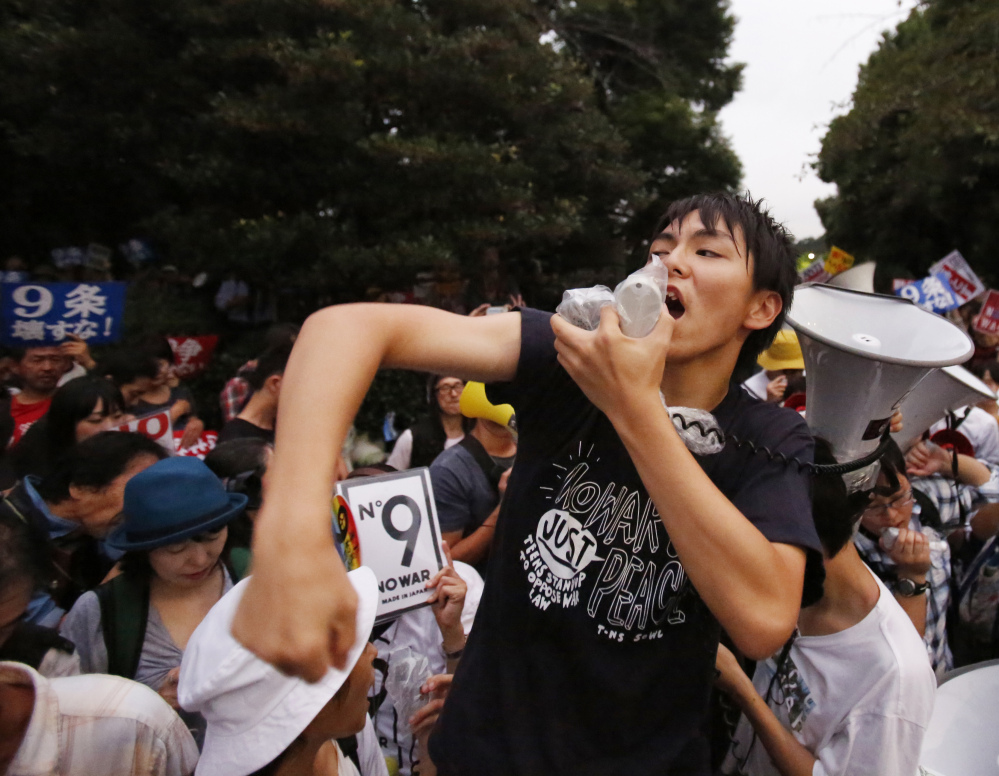TOKYO — Japan’s parliament has approved contentious legislation that enhances the role of the country’s military by loosening post-World War II constraints, as the ruling bloc defeated opposition parties’ last-ditch effort to block a vote.
The upper house’s approval in the early hours of Saturday makes the legislation into law, reinterpreting Japan’s constitution and fundamentally changing the way it uses its military. Opponents say it violates Japan’s constitution and puts the country at risk of becoming embroiled in U.S.-led wars.
The legislation has sparked sizable protests and debate about whether Japan should shift away from its pacifist ways to face growing security challenges. Rallies have spread across the nation especially after the ruling parties approved the bills in July in the more powerful lower house.
Japan’s military can now defend its allies even when the country isn’t under attack – for the first time since the end of the World War II – and work more closely with the U.S. and other nations. Japan will also be able to participate more fully in international peacekeeping, compared to its previous, mostly humanitarian, missions.
“The legislation is necessary in order to protect the people’s lives and their peaceful livelihood, and it is to prevent a war,” Prime Minister Shinzo Abe told reporters after the passage of a total of 11 bills – one related to international peacekeeping and a package of 10 others designed to allow Japan’s military to defend its allies in an action called “collective self-defense.”
Dozens of constitution scholars, lawyers and other legal experts have joined protests, saying the legislation allowing Japan to use force to settle international disputes violates its U.S.-drafted postwar constitution that renounces a right to wage war.
China said it and other Asian neighbors are closely watching the vote because of Japan’s wartime aggression.
“We demand that Japan genuinely listen to just appeals from both at home and abroad, learning from historical lessons and adhering to the path of peaceful development,” Chinese Foreign Ministry spokesman Hong Lei told a news briefing Friday.
Copy the Story LinkSend questions/comments to the editors.



Success. Please wait for the page to reload. If the page does not reload within 5 seconds, please refresh the page.
Enter your email and password to access comments.
Hi, to comment on stories you must . This profile is in addition to your subscription and website login.
Already have a commenting profile? .
Invalid username/password.
Please check your email to confirm and complete your registration.
Only subscribers are eligible to post comments. Please subscribe or login first for digital access. Here’s why.
Use the form below to reset your password. When you've submitted your account email, we will send an email with a reset code.